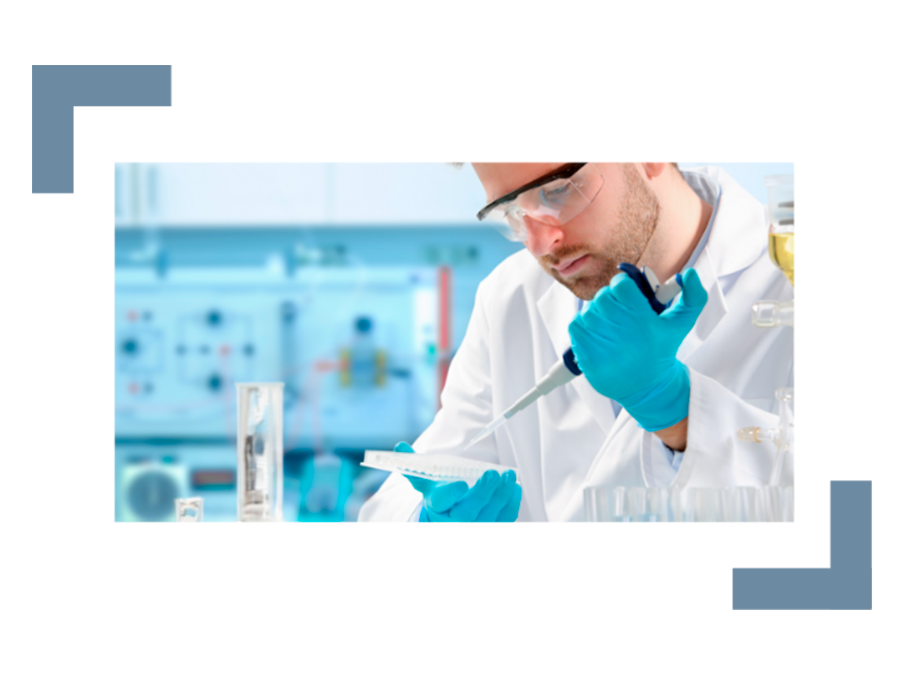The Molecular Genetics Department focuses its efforts on supporting the postnatal and prenatal molecular diagnosis of genetically based pathologies, oncological genetic diagnosis and molecular diagnosis of infectious diseases. To do so, the department has a transversal management structure in which all its members actively collaborate to ensure the exchange of information and provide the most accurate diagnosis possible.
The team is made up of specialists and laboratory technicians who have received clinical training in some of the leading universities and/or public hospitals at Spanish and international level, with which we work closely. This team has a solid track record of over 20 years of service to the medical community and, therefore, is able to adapt to the needs of different types of medical practices, offering comprehensive diagnostic solutions.
The laboratory has state-of-the-art technology for genetic diagnostic analysis. The laboratory is also characterized by a high degree of workflow automation, with several robotics platforms that optimize performance through their capacity to accurately process a large number of samples and minimize the risk of cross-contamination.
What we do?

Particularly the analysis of cell-free foetal DNA in maternal blood for the screening of chromosopathies and/or copy number variations (CNVs) by whole genome sequencing (WGS), as well as for determination of the gender or Rh group of the foetus. It also offers a large number of (invasive) diagnostic tests for the confirmation of genetic diseases (beta-thalassemia, haemophilia, cystic fibrosis, targeted exome, etc.) and QF-PCR for rapid detection of the most common trisomies.

Through point mutation analysis, the study of large deletions or duplications, triplet expansion, individual gene sequencing, gene panels or clinical/whole exome studies for the confirmation of a pathology of genetic origin. In addition to these analyses, studies are also carried out on carriers of genetic disorders to whom appropriate genetic counselling can be provided.

Using molecular genetic techniques, especially gene panels updated with the latest scientific publications, to offer the most up-to-date diagnosis while maintaining minimum turnaround times. We also focus on the study of hereditary breast and ovarian cancer, colorectal cancer, melanoma, pancreatic and prostate cancer, among others.

To determine the treatment, prognosis and define the diagnosis of oncological and onco-haematological diseases. SYNLAB’s multidisciplinary team, which combines the expertise of pathologists, oncologists, haematologists, cytogeneticists and molecular biologists, enhances the quality of each diagnosis.

With a focus on the detection of the pathogens causing hepatitis (B and C), HIV, respiratory viruses (including the study of SARS-CoV-2 variants) or sexually transmitted diseases, among others. Diagnostic tests are also included to evaluate infections with a risk of vertical transmission (rubella, varicella, zika, etc.) in pregnant women.
What sets us apart?
Our laboratory was the first in Europe to develop a non-invasive prenatal genetic test (NIPT) and also the first in the world to apply bidirectional paired-end WGS technology to NIPT studies. For all these reasons, the staff of this department have a high level of experience in the NIPT field, having analysed over 80,000 samples.
More recently, we were the first laboratory in Spain to offer the RT-PCR test for the detection of SARS-CoV-2 in mouthwash and saliva samples, yet again demonstrating our capacity to react quickly and adapt to the diagnostic needs at every point in time.
Also worth noting are the scientific dissemination activities by the department's staff through the publication of articles in high impact scientific journals, and attendance and presentation of papers at Spanish and international conferences. All of this enables us to offer quality service at the forefront of the latest developments and technologies.
The department’s team offers a consultation service in order to guide and support the specialist in the assessment and interpretation of results.


